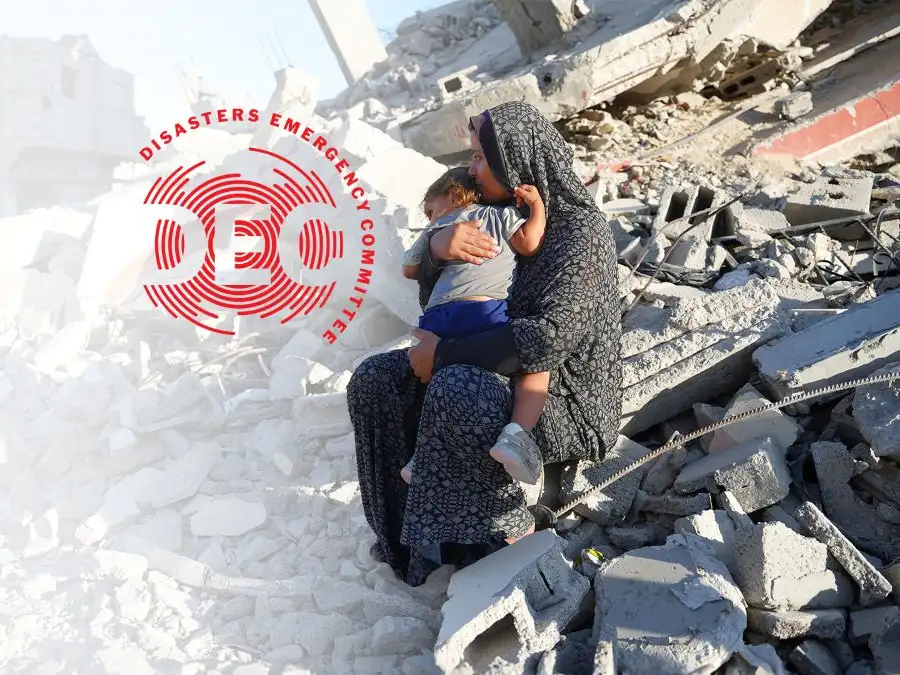Millions of people have fled their homes in search of safety. They urgently need shelter, food, healthcare and basic supplies.
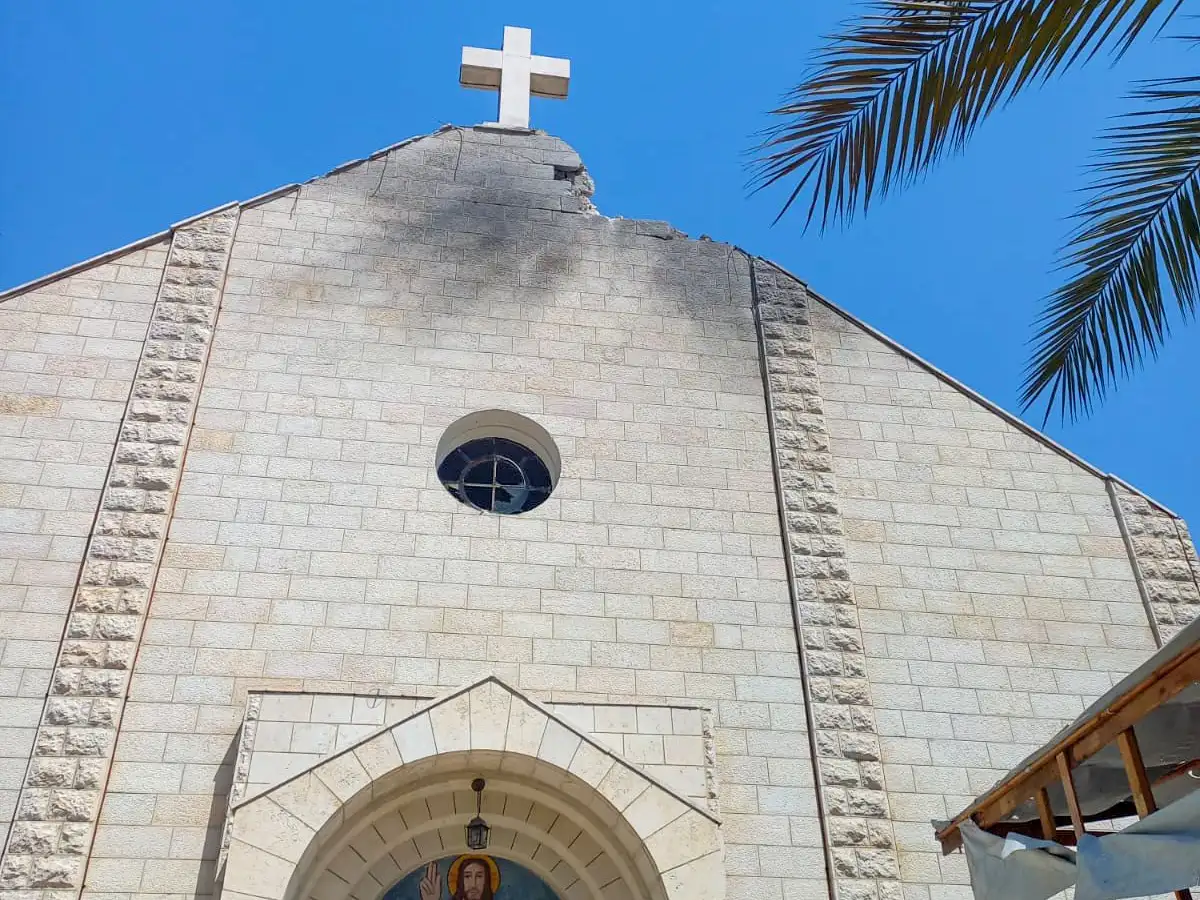

The Holy Family Church in Gaza, which was damaged after being struck by a shell in an attack that killed three people and injured others
The UK government has recognised Palestine as a state. It is an important act of solidarity in a time when the reality for Palestinian families means that the dream of a viable Palestinian state seems more distant than ever.
“Amidst the utter devastation and destruction we’re witnessing in Gaza and settlements in the West Bank increasing exponentially […] the recognition of Palestine by the UK is an important act of solidarity in support of a political path to promoting rights, peace and security for all,” says Elizabeth Funnell, CAFOD’s Middle East country representative.
We are now calling for the UK government to ensure that recognising Palestine as a state is accompanied by urgent, concrete action.
How can I respond to the crisis in Gaza?
Despite overwhelming challenges and risk to life, our local partners are clear that, with your support, they can continue to deliver vital support to those in greatest need.
In September, we heard from our partner Caritas Jerusalem that Israeli military operations in northern Gaza have created grave risks for their staff. For their safety, Caritas Jerusalem have suspended operations at five of their ten medical points. Despite the challenges, Caritas teams remain active in the south, where displaced families are gathering, and continue to deliver urgent, lifesaving healthcare through five medical points.
Join us in prayer by adding your name as a sign of your prayers, which we will share in solidarity with our partners who are responding to this humanitarian crisis.
How are CAFOD and local partners responding?
We work closely with local teams to bring about peace, support those in conflict and push for long-lasting change.
“CAFOD has been working with Palestinian partners in the occupied Palestinian territory and with Israeli organisations working for peace for more than three decades, witnessing firsthand the impact of conflict and occupation on their lives and livelihoods. Alongside an entrenched military occupation and a brutal conflict in Gaza, the total absence of a process towards a more peaceful future with justice and equality for all continues to be a cause of grief and despair for generations of Palestinians,” says Elizabeth Funnell.
Recognising Palestine as a state comes at a crucial time when our local partners are working hard to support families whose land is being taken under the guise of war.
We have local partners documenting the attacks on Palestinians in towns villages and farming communities across the West Bank. Sadly, incidents have become increasingly violent, destroying lives and livelihoods while systematically pushing Palestinian communities off their land.
I once again call for an immediate end to the barbarity of this war and for a peaceful resolution to the conflict
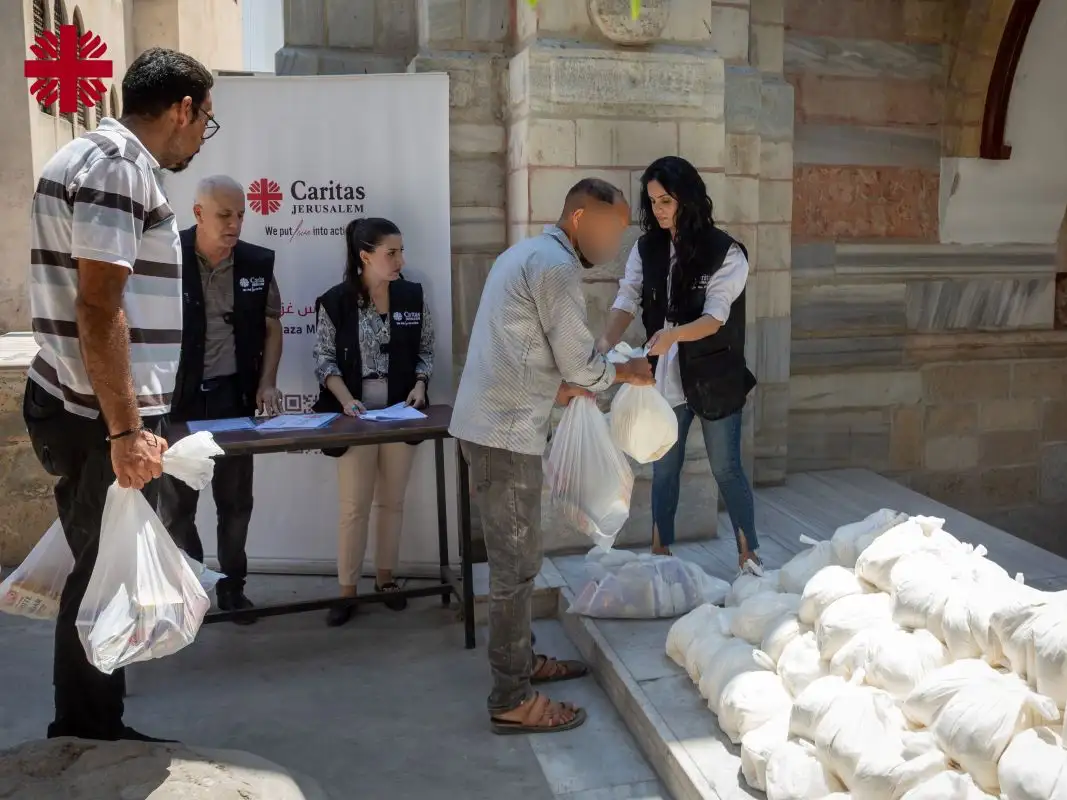

A food parcel distribution at the Holy Family Church in Gaza City
What has the Church said about the crisis in Gaza?
Pope Leo XIV has called for an immediate ceasefire and that international law must be respected:
“I once again call for an immediate end to the barbarity of this war and for a peaceful resolution to the conflict.”
The Latin Patriarch, Cardinal Pizzaballa, visited Gaza after the attack on the Holy Family Church and said:
“Humanitarian aid is not only necessary - it is a matter of life and death. Refusing it is not a delay, but a sentence. Every hour without food, water, medicine and shelter causes deep harm.
“To target a church where families sought refuge, where children slept, violates every principle of humanity and international law. The world cannot remain silent.”
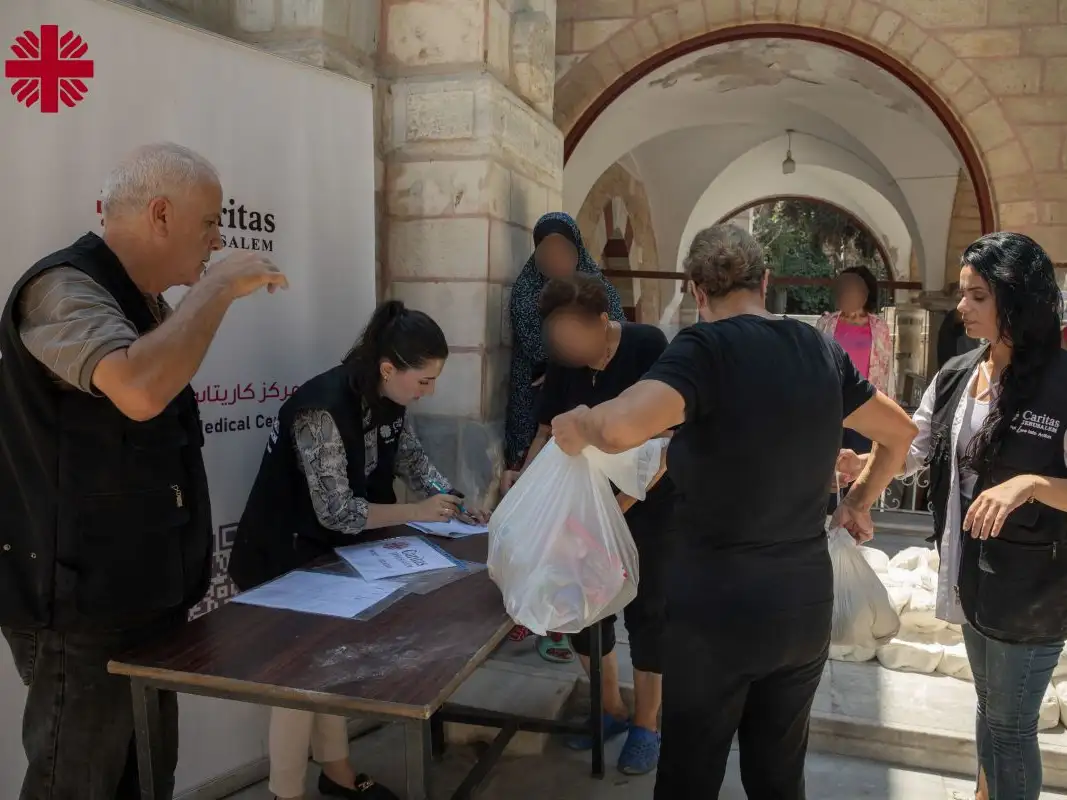

A food parcel distribution at the Holy Family Church in Gaza City
Our work in Gaza is a testament to our unwavering commitment to the health and wellbeing of the community, even under the most difficult conditions
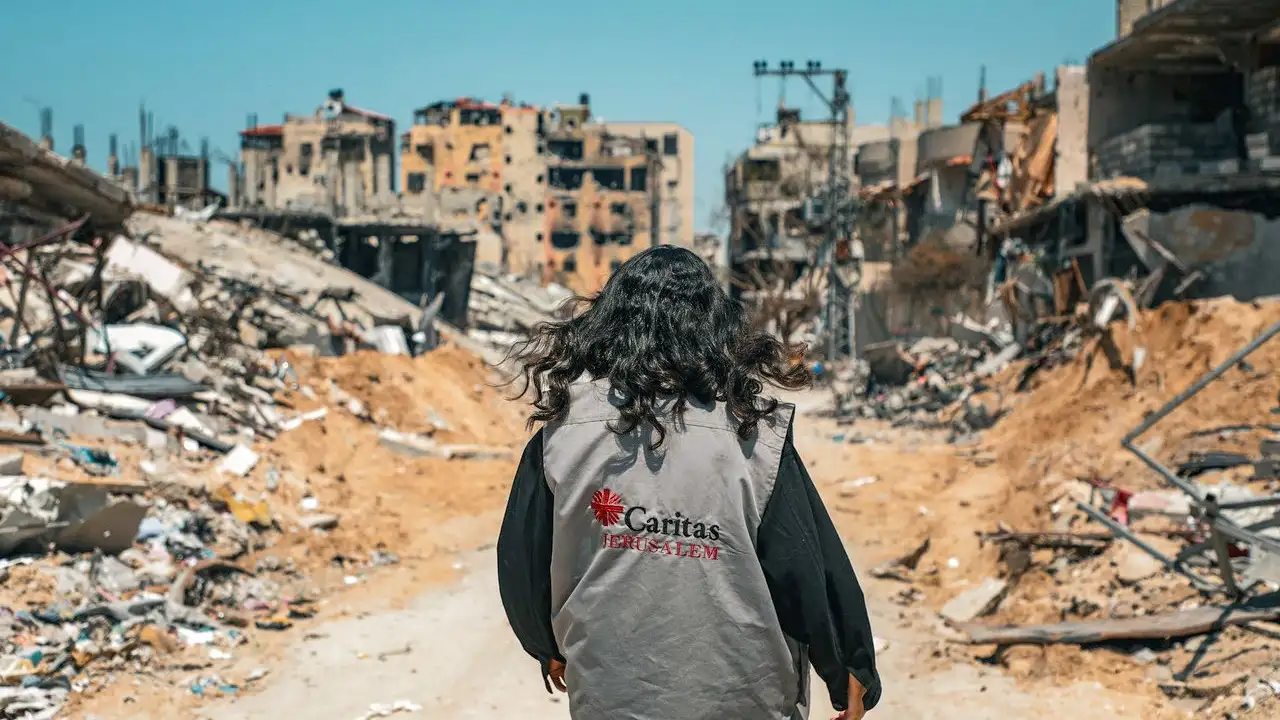

Credit: Caritas Jerusalem
What action on Gaza is CAFOD calling for?
More than 100 organisations (including CAFOD) are urging governments to take decisive action to:
open all land crossings
restore the full flow of food, clean water, medical supplies, shelter items and fuel through a principled, UN-led mechanism
end the siege
agree to a ceasefire now.
The UK and 25 other governments are also calling for an end to the war in Gaza and the release of all hostages.
While humanitarian zones continue to be hit, more in the way of concrete action is still needed. CAFOD's Director of Advocacy Neil Thorns explained:
“The joint statement from the UK and 25 other nations, calling for an urgent end to the war in Gaza, is only worthwhile if it leads to immediate concrete action. We urge the Foreign Secretary David Lammy MP to suspend arms sales to Israel and ban all settlement trade today.
“Attacks on humanitarian zones, hospitals, schools and places of worship are a violation of international law. The people of Gaza have almost nowhere safe left to go. We need more than words to help broker a peaceful resolution and bring urgent relief to hundreds of thousands facing intolerable suffering."


